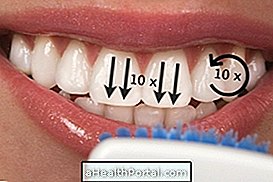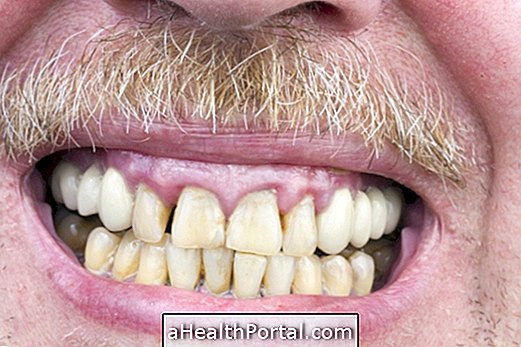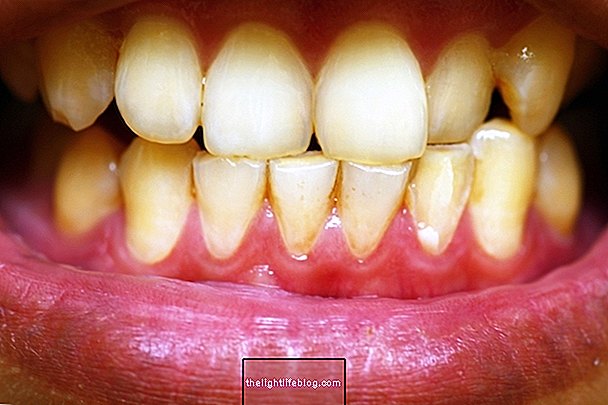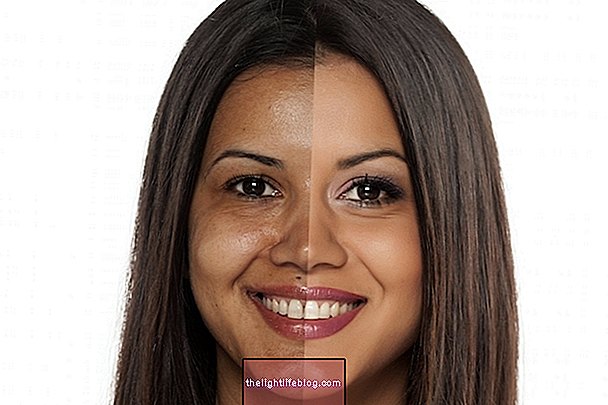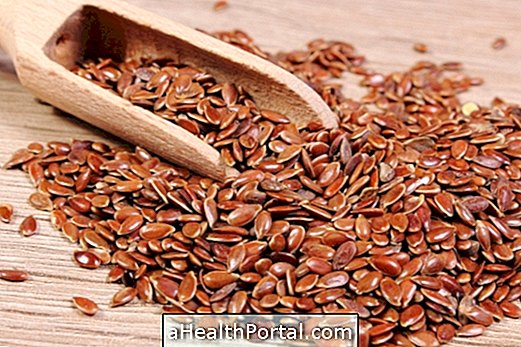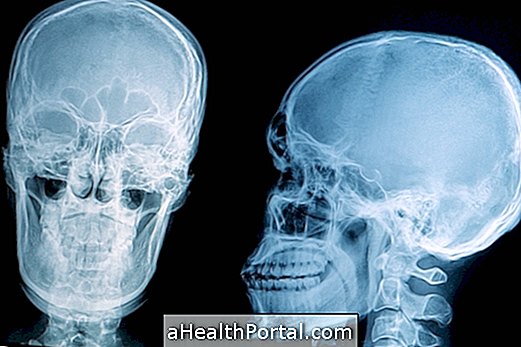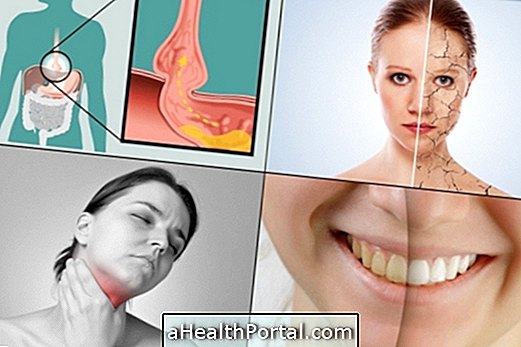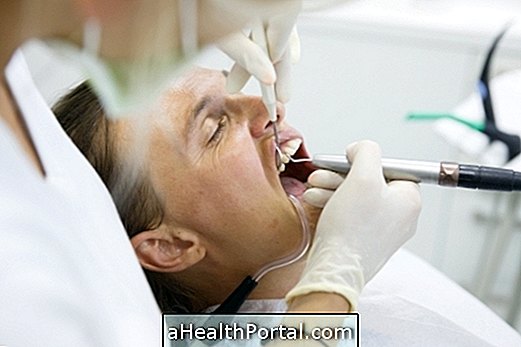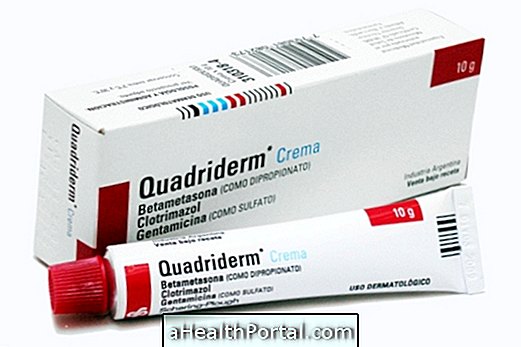A good way to confirm if you have bad breath is to place both hands in the shape of a cup in front of your mouth and blow slowly, and then breathe in that air. However, for this test to work it is necessary to stay without speaking and with your mouth closed for at least 10 minutes. This is because, the mouth is very close to the nose and, therefore, the smell gets used to the smell of the mouth, not allowing it to be smelled if there is no pause.
Another way to confirm is to ask someone else, who is trustworthy and very close, to tell you if you have bad breath. If the result is positive, what we advise you to do is to invest in the correct cleaning of the teeth and the whole mouth, brushing your teeth every day after eating and before bed to eliminate as many germs, food scraps and plaque as possible. .
However, if the symptom still persists, a consultation with the dentist is indicated because dental treatment may be necessary. When the dentist observes that there is no reason for bad breath in the mouth, other causes should be investigated, in which case halitosis, as bad breath is scientifically known, may be caused by a disease in the throat, stomach or even for more serious illnesses, including cancer.

The main causes of bad breath are usually inside the mouth, being caused mainly by the tongue coating which is the dirt that covers the entire tongue. But cavities and gingivitis, for example, are also among the most common causes of bad breath. Learn how to solve each of these causes and learn about other possible causes:
1. Dirt on the tongue
Most of the time bad breath is caused by the accumulation of bacteria on the tongue that leaves its surface a whitish, yellowish, brown or gray color. More than 70% of people with bad breath, when cleaning their tongue properly, get pure breath.
What to do: Whenever you brush your teeth, you should also use a tongue cleaner that you can buy at pharmacies, drugstores or on the internet. To use, just press across the tongue, backwards and forwards, to completely remove the dirt from the tongue. If you do not have a cleaner, you can also clean your tongue with the brush, moving back and forth at the end of the brushing.
2. Caries or other dental problems
Caries, plaque, gingivitis and other diseases of the mouth such as periodontitis are also common causes of bad breath because in this case the proliferation of bacteria inside the mouth is very large and there is the release of a characteristic smell that leads to the development of bad breath.
What to do: if any of these problems are suspected, you should go to the dentist to identify and treat each one. In addition, it is important to brush your teeth, gums, the inside of your cheeks and tongue very well to avoid the appearance of new cavities or plaque. See everything you need to do to brush your teeth properly.
3. Not eating for many hours
When you spend more than 5 hours without eating anything, it is normal to have bad breath and that is why, when you wake up in the morning, this odor is always present. This is because the salivary glands produce less saliva, which serves to help digest food and keep your mouth clean. In addition, if the body does not eat for a long time, it can start producing ketone bodies as a source of energy from the breakdown of fat cells, causing bad breath.
What to do: it is advisable to avoid going more than 3 or 4 hours without eating during the day, and even if you need to fast for a longer time, you should always drink small sips of water to clean your mouth and stimulate the production of saliva . Sucking a clove can be a very effective natural solution in this case.
Get to know some other tips to eliminate bad breath naturally in the following video:

4. Wear dentures
People who wear some type of denture are more likely to have bad breath because it is more difficult to keep their mouths always clean and the plaque itself can accumulate dirt and leftover food, especially if it is not the ideal size, with a perfect fit inside the mouth. . Small spaces between the plaque and the gums can allow the accumulation of food scraps, being all that the bacteria, which produce the bad smell, need to multiply.
What to do: brush your teeth and the entire inner region of your mouth and also clean your dentures thoroughly every day before bed. There are solutions that the dentist can recommend to soak your dentures overnight and eliminate bacteria. But before putting this prosthesis in your mouth again in the morning, it is also advisable to rinse your mouth again to keep your breath clean. Check the step-by-step instructions for cleaning the dentures correctly.
5. Eat foods that make your breath worse
Certain foods can cause bad breath, such as broccoli, kale and cauliflower. These vegetables promote the formation of sulfur inside the body and this gas can be eliminated through the anus or through the mouth. But foods like garlic and onions also favor bad breath just by chewing them because they contain a very strong and characteristic odor that can remain in the mouth for hours.
What to do: the ideal is to avoid the frequent consumption of these foods, but in addition it is also important to always brush your teeth and clean your mouth very well after consumption, as this will make your breath fresher again. See a larger list of foods that cause gas and therefore also favor bad breath.
6. Throat infections or sinusitis
When you have a sore throat and have pus in your throat, or when you have sinusitis, it is normal to have bad breath because in this case there are many bacteria in the mouth and nasal cavity that end up releasing this bad smell.
What to do: Gargling with warm water and salt is excellent for helping to remove pus from the throat, naturally eliminating bad breath. Breathing the steam of warm water with eucalyptus is also excellent for fluidizing nasal secretions, favoring their removal, being a great home remedy against sinusitis.
7. Stomach problems
In case of poor digestion or gastritis it is common for belching to appear, which is the belching, these gases when passing through the esophagus and reaching the mouth can also cause bad breath, especially if they are very frequent.
What to do: improve digestion by always eating in small quantities, in a more varied way and always eating some fruit at the end of each meal is a great natural strategy to fight bad breath caused by stomach problems. See more examples on home remedy for the stomach.
8. Decompensated diabetes
People who have uncontrolled diabetes can also have bad breath, and this is due to diabetic ketoacidosis, which is common in these cases. Diabetic ketoacidosis happens because as there is not enough glucose inside the cells, the body starts to produce ketone bodies in order to generate energy, resulting in bad breath and also lowering the blood pH, which can be dangerous in case of diabetes is not properly treated.
What to do: in this case, the best thing to do is to follow the treatment according to the doctor's guidance, as this way it is possible to prevent diabetic ketoacidosis. In addition, if symptoms of ketoacidosis are seen, it is important that the person goes immediately to the hospital or emergency room to avoid complications. Know how to identify diabetic ketoacidosis.
Test your knowledge
Take our online test to find out if you have the basic knowledge on how to take care of oral health to stop bad breath:
- 1
- 2
- 3
- 4
- 5
- 6
- 7
- 8
Oral health: do you know how to take care of your teeth?
Start the test


It is important to consult the dentist:
- Every 2 years.
- Every 6 months.
- Every 3 months.
- When you are in pain or some other symptom.

Floss should be used every day because:
- Prevents the appearance of cavities between teeth.
- Prevents the development of bad breath.
- Prevents inflammation of the gums.
- All of the above.

How long do I need to brush my teeth to ensure proper cleaning?
- 30 seconds.
- 5 minutes.
- Minimum of 2 minutes.
- Minimum of 1 minute.

Bad breath can be caused by:
- Presence of cavities.
- Bleeding gums.
- Gastrointestinal problems like heartburn or reflux.
- All of the above.

How often is it advisable to change the toothbrush?
- Once a year.
- Every 6 months.
- Every 3 months.
- Only when the bristles are damaged or dirty.

What can cause problems with teeth and gums?
- The accumulation of plaque.
- Have a high sugar diet.
- Have poor oral hygiene.
- All of the above.

Inflammation of the gums is usually caused by:
- Excessive saliva production.
- Accumulation of plaque.
- Tartar build-up on teeth.
- Options B and C are correct.

In addition to the teeth, another very important part that you should never forget to brush is:
- Tongue.
- Cheeks.
- Palate.
- Lip.
Was this information helpful?
Yes No
Your opinion is important! Write here how we can improve our text:
Any questions? Click here to be answered.
Email in which you want to receive a reply:
Check the confirmation email we sent you.
Your name:
Reason for visit:
--- Choose your reason --- DiseaseLive betterHelp another personGain knowledge
Are you a health professional?
NoMedicalPharmaceuticalsNurseNutritionistBiomedicalPhysiotherapistBeauticianOther

